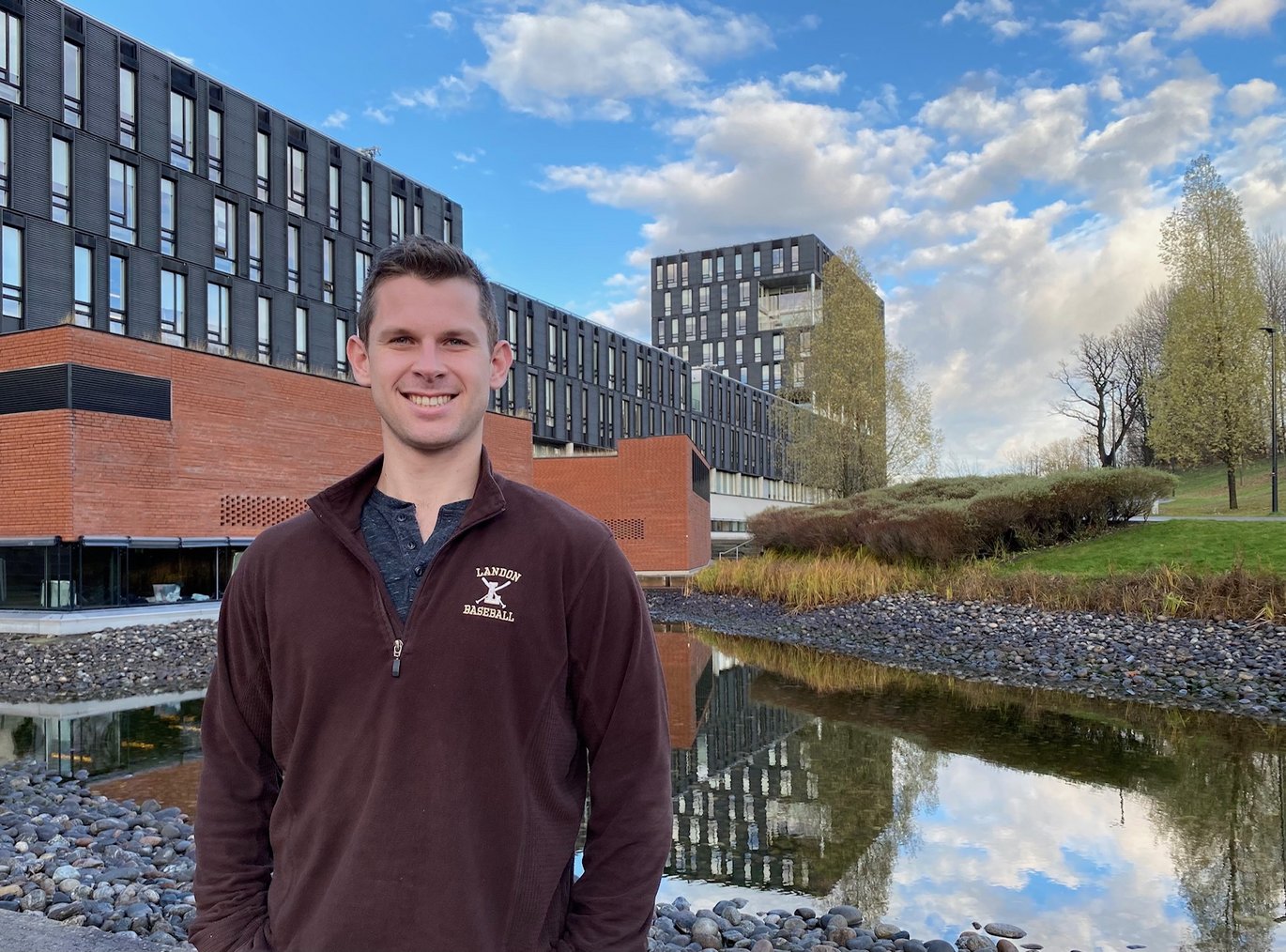Knowledge sharing across the Nordics: NCMM hosts national PhD course in Molecular Medicine
During 8-19 November, NCMM hosted its annual PhD course in Molecular Medicine, strengthening scientific exchange and interactions in the Nordic countries.

This year 38 PhD students registered for the annual intensive course hosted by the Centre for Molecular Medicine Norway (NCMM) at the University of Oslo, Norway. The course featured 44 national and international experts teaching a broad array of molecular medicine topics such as disease mechanisms and models, biobanks and registries, drug discovery, personalized and cell-based therapies, computational biology, and the timely topic of SARS-CoV-2 detection, vaccination and drug targeting.
Strengthening knowledge sharing across the Nordics
NordForsk funding granted to the Nordic EMBL Partnership for Molecular Medicine enabled the 2021 course offering to be extended to early-career researchers in the wider Nordic region, outside of Norway. This funding is designed to support knowledge transfer and interactions through training, research collaboration and mobility across the Partnership.
With this funding, Alex Harvey, a PhD student from DANDRITE, NCMM’s sister center in Aarhus, Denmark, attended the PhD course in Oslo.
As the course drew to a close this week, we caught up with Alex to find out what the course meant to him.
In his PhD project, Alex is investigating RNA-mediated mechanisms important for learning and memory, specifically studying NMDA receptors, protein channels that allow ions to pass through the cell membranes of neurons. Course lectures on neurological mechanisms of disease were particularly relevant for his research. However, Alex also found surprising insights from fields very different from his own. Biochemical processes originating elsewhere in the body triggered his curiosity and provided new perspectives and questions about his own field. These mechanisms could also be applied in neuroscience. Alex explained:
"In science, the most helpful thing for me is being able to look at someone else’s research from a completely different field. They use different metrics and tests that are specific to their particular field, but by looking at it, you can have an epiphany that can also be applied to your own project."
Opportunity to broaden horizons
Joining the course at NCMM in Oslo provided Alex with an opportunity to meet new people and experience a different environment. He saw science from new angles while still focusing on developing his scientific education in neuroscience.
"There is value to having these different experiences that add to my education. Here I have met primarily medical students who are also doing research. They are not necessarily looking at pre-clinical models in a PhD setting. They are looking at research with the focus of applying it to medicine," Alex said.
Being able to join the course in person rather than remotely made it a more interactive and engaging experience for Alex. It was easier to learn, especially in the fields that were new to him.
Alex feels he has a lot to take home from the course. With 70 pages of notes already by the mid-point of the course, he concluded:
"Just looking at my notes so far, there are so many different ideas and such a wide overview that I feel I’ve gotten a good spread of molecular medicine. These insights are not only helpful to my current project but also to other future research ideas that I may potentially have."
After two weeks in Oslo, Alex returns to his home institute, DANDRITE in Aarhus, Denmark. In addition to his suitcase, he carries along new knowledge and experiences to share with his colleagues in Denmark.
Training at the forefront of molecular medicine research
The annual course in molecular medicine has been hosted annually since 2011. Students in the course investigate selected topics in disease mechanisms and development, translational medicine and the future of diagnostics and targeted therapies. Multiple aspects of the course are integrated into the newest approaches for stratified, tailored and personalized medicine.
For basic science early-career researchers, the course provided insights into translational and clinical aspects of molecular medicine. Conversely, those working in clinical medicine gained new insights into molecular mechanisms, disease models and preclinical studies.
But, it goes further than reciprocal insights. One of the lecturers, Gunnveig Grødeland from the Institute for Clinical Medicine, at the University of Oslo, who gave a talk about vaccine development in the context of SARS-CoV-2, explained
"good science requires that you can place your research into a broader context. This enables the creative processes needed for development of hypotheses and strategies that may go even beyond current state-of-the-art."
Like the participants, the course lecturers were happy for the opportunity to meet in person. Gunnveig captures the sentiment:
"I had so much fun meeting a live audience again, and in particular an audience demonstrating such a high degree of curiosity and reflection as that which I met here. They asked a lot of great and thoughtful questions, demonstrating a keen interest in the field."
NCMM looks forward to hosting the next annual molecular medicine course in November 2022.